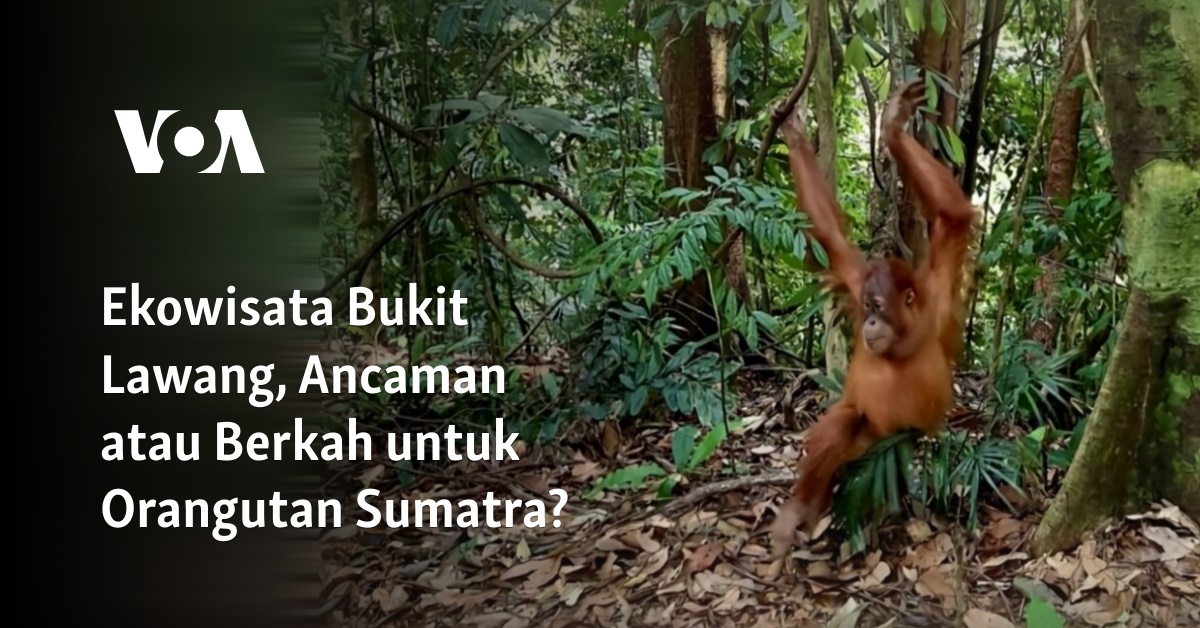
Bukit Lawang, located in the Bahorok District of Langkat Regency, North Sumatra, is known as one of the natural tourist attractions on the island. The area is also located within the Gunung Leuser National Park (GNLP). Today, Bukit Lawang has become a leading ecotourism destination in North Sumatra.
Ecotourism in Bukit Lawang offers many charms through the natural scenery, flora, and fauna that exist within the conservation area. The natural attractions offered in Bukit Lawang vary from river exploration to trekking in the forest. As time passes, Bukit Lawang now also offers natural attractions to both local and foreign tourists to interact with the Sumatran orangutan (Pongo abelii). The opportunity to see the orangutans has become a magnet that attracts tourists to visit Bukit Lawang. According to the latest data from 1973 to 2003, the presence of the Sumatran orangutan in Bukit Lawang is estimated to have reached more than 200 individuals, although no recent data is available.
Mamat Rahma, Head of the GNLP, said the orangutans that attract tourists are semi-wild species that come from rehabilitation activities. “But sometimes visitors can also meet wild Sumatran orangutans who are not from rehabilitation activities,” he said recently to VOA. The question arises whether ecotourism activities will become a blessing or a threat to these highly endangered animals.
Concerns have arisen as more tourists visit the area, potentially causing the endemic species of Sumatra to become habituated or accustomed to humans. “There is potential for a change in the behavior of Sumatran orangutans, from being wild orangutans to semi-wild because of the many interactions with humans through direct encounters,” he said.
During the COVID-19 pandemic, Bukit Lawang’s hopes were high not to experience changes in behavior. At that time, tourism in Bukit Lawang was dormant after being affected by COVID-19. Tourists could not visit Bukit Lawang, especially to interact with the Sumatran orangutan after ecotourism in the area was closed by the local government. After the COVID-19 pandemic, changes in orangutan behavior towards naturality occur. Mamat believes the possibility of more natural behavior is due to reduced human interactions with Sumatran orangutans. However, there is still no study on whether there is a behavioral change in orangutans when the number of tourists decreases.
As the number of tourists skyrocketed in Bukit Lawang post-COVID-19, the GNLP has made efforts to maintain the natural behavior of the orangutans without becoming habituated by humans. These efforts include socializing visitors to maintain a distance from these rare and endangered species. The GNLP has also suggested that future visitors should be restricted and choreographed to observe the life of Sumatran orangutans.
Restricting the number of tourists allowed in ecotourism areas benefits the orangutans, most of which are from rehabilitation activities. However, limiting the number of visitors also helps orangutans return to their natural habitat. University lecturer and researcher at the North Sumatra University, Onrizal, suggests imposing a quota of visitors per day to maintain Sumatran orangutans’ behavior.
In conclusion, balancing conservation with ecotourism in Bukit Lawang is possible without endangering orangutans. The GNLP has already set up operating procedures that must be adhered to by all tourists and guides to preserve the Sumatran orangutans’ habitat. Orangutans are among the protected wildlife species in Indonesia, and their conservation is vital to the world’s biodiversity.


